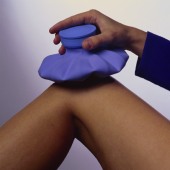
FRIDAY, July 17, 2015 (HealthDay News) — Improving sleep quality might help ease pain among those with osteoarthritis, a new study suggests.
That’s because disruptions in sleep are associated with changes in how the body processes and feels pain, the researchers said.
More than half of all people with osteoarthritis have pain during the night. This may lead to broken sleep and frequent shifts between sleep stages. Previous studies have suggested that disrupted sleep can help predict the severity of pain, the scientists explained.
The team of researchers, from the University of Alabama and the University of Florida, were led by Megan Petrov, an assistant professor at Arizona State University in Phoenix. The team investigated whether or not poor-quality sleep was linked to greater sensitivity and reduced tolerance for pain among those with chronic pain.
In conducting the study, the researchers examined the link between the severity of self-reported insomnia, troubled sleep and pain sensitivity among people with knee osteoarthritis. They assumed those with the worst cases of insomnia would have more pain and less tolerance for it.
The study participants were between 45 and 85 years old. Eighty-eight of the study participants were black and 52 were white, according to the study. The volunteers completed questionnaires and experimental pain applications. The study, published recently in The Journal of Pain, confirmed that the severity of sleep disruption was associated with changes in how the body processes pain.
While the researchers found only an association between sleep and pain tolerance, they advised that treatments designed to improve sleep might ease pain in people with osteoarthritis. They noted that cognitive behavioral therapy focused on sleep might offer osteoarthritis patients with insomnia the greatest benefits.
Osteoarthritis is the most common form of arthritis. It causes pain, swelling and reduced motion in joints. It can occur in any joint, but usually affects the hands, knees, hips or spine, according to the U.S. National Library of Medicine.
More information
The National Sleep Foundation provides more information on pain and sleep.
Copyright © 2026 HealthDay. All rights reserved.

